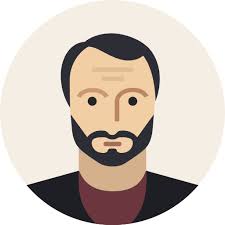Introduction
Development processes help in transformation and evolution of the current stages into more advanced forms. The main aim of this assessment is to develop a comparison within two developmental theories considering a developmental process at workplace. For this study, a personal developmental course is selected and two developmental theories include the psychoanalytical theories and cognitive theories. This assessment is in the form of reflective account with brief description of the personal development course which needs to be considered in the workplace for individual development of employees. Furthermore, aforementioned theories will be discussed in terms of their key aspects and basic similarities and developments with consideration to the stages of development. Lastly, an analysis is performed to gain a perception regarding working of the developmental process in the influence of these two theories.
Assignment Prime is an online assignment writing service provider which caters the academic need of students.
Get Best Pricing Quotes Free Samples Email : help@assignmentprime.com Order NowPersonal development course varies from individual perceptions to the perseverance of the organisation. The requirement of such a development process is realised when productivity of a particular individual is decreased and when there is a requirement for improvements in the functioning pattern. Organisation holds large number of benefits when an individual is encouraged to adopt such practises. These benefits are reflected in terms of more efficiency and motivated approach towards demands of the company.
A brief description of the developmental practise chosen
When a business enterprise develops a vision to gain higher standards in the competitive markets then first point of implementation of the change is considered as employees. There are different strategies and developmental practises which are considered to be implemented so that improvements or changes in the organisation can be achieved (Austrian, 2013). Similarly, a personal development course is a strategic approach and psychological development process which is initiated by an individual to inculcate certain changes for overcoming weaknesses.
Often such types of personal development processes are considered as a non-benedictory element for the organisation. It is considered as an investment made for personal benefits and not the organisational goals or objectives (Schore, 2015). The purpose behind activation of a process is to bring in changes and improvements so that efficiency of the organisation is improved. However, efficiency cannot be revised unless the working individuals are themselves not skilled and knowledgable.
In terms of the business organisations, personal development course is considered as step to build the human capital and strengthen most important asset of the organisation. It not only helps in increasing productivity but also generates pathways to motivate employees and increase their retention capacities (Renninger, Hidi and Krapp, 2014).
Definition of development
The perseverance or perception for a particular concept is the main element that leads to build up of a strategic definition. It is possible that development may sound in the form of education for one person and may be considered as achieving a milestone for some other person. Baltes and Schaie, (2013) stated that development is the improvements and changes which take place at the core point of the individual for sustaining life. On the other hand, from the psychological perspective, focus is mainly on the changes which occur to individuals in terms of their emotions, social acceptance, cognitive approaches, etc.
The most important attribute when considering implementation of a strategy is its purpose. For instance, the organisation that wishes to encourage individuals for adopting a personal development course must deliver or communicate the purpose that lies behind this approach. Developmental psychology aims to utilise the growth measurement tools for understanding the behavioural attributes that lead to the changes and accomplishment of goals and objectives (Kolb, 2014). Optimisation of the relative behaviour is also considered as development and growth in terms of age and experience.
Key aspects of the two chosen theories
Theories of development renders an innovative approach and framework that could be used for stimulating human growth and learning. Psychological theories of development supports for motivating and influencing human thoughts and behavior. Meaningful and deep insight about human understanding is provided by these theories. It is vital that detailed analysis of these theories should be performed so that key understandings should be learned.
Two major theories that have been used for developing framework are as described
Psychoanalytic theory
Sigmund Freud has taken initiative for developing this theory. According to the theory mentioned by him unconscious desires and Childhood experiences of an individual gives influence on the behaviour performed by him. Developed have been described in his theory in terms of psychosexual stages. Each stage has different theories and understanding. Accordingly management should apply the best aspect for the development of better knowledge aspect.
It is critical that phases of each stage should be understood properly so that required meanings of the theory should be understood. According to the theory given by Freud, it has been mentioned that conflicts that occur at various stages gives lifelong influence on the behaviours and personality of the individual. With this, it has been described that personality of an individual is developed through interaction and conflict among three major forces that comprise of Superego, ego and id (Austrian, 2013). This theory proved milestone and it has rendered an innovative framework that supported for analysing the ways that could be used for stimulating growth of individual. Each stage that is responsible for personality development is characterized by some specific internal psychological conflicts. This theory argues that personality of a person develop during childhood and it is developed through series of psychosexual stages.
Cognitive theory
This theory is associated with the development and manner of an individual's thought process. Way in which a person makes interaction with outside world have been described in detail in this theories. Jean Piaget was the initiator who has taken initiative for proposing an idea that expedites for changing the perspectives for child development. There are four stages of child development that have been described under this. The theory given by Piaget suggest that a child passes through four stages of mental development. The theory gives focus on understanding the nature of intelligence and ways through which a child acquire knowledge.
As per the theory, child takes part actively in the learning process and they learn by performing experiments, making observations and learning about the world (Peters, 2015). When kids interact with the outside environment than they continually add knowledge and adapt to the situation. However the theory also mentioned about the characteristics and developmental challenges.
The challenges comprise that infant knows and understand the world through sensations and movements and due to that their basic actions such as looking at things, listening and grasping knowledge gets influence due to that. With this, there are four major stages and it includes Sensorimotor stage, pre-operational stage, Concrete operational stage and Formal operational stage. Major characteristics of personality development and challenges have been mentioned under all the four stages.
Similarities
Theory given by Piaget and Freud hold some similarities and due to that it becomes easier for prepare a framework that could be used for personal development course. Both the theories mentioned that overall growth and personality of individuals gets affected due to the different development stages.
Cognitive theory of personality development aids for understanding different perspective that could be used for children's intellectual growth. The theory also stressed that kids are merely recipients of knowledge but they are investigate and experience knowledge. It aids them in understanding their outside environment. Likewise theory given by Freud on Psychological development stressed that sexuality is the main driver of personality development.
This theory also mentioned that there are development stages through which a child passes and it helps them for making development in their human theory (Renninger, Hidi and Krapp, 2014). Personality development places great importance on how conflicts among the parts of the mind shape and due to that behaviors and personality. According to the theory given by Freud personality of a child develops during the childhood and it is critically supports for development and growth of the child. Both the theories gives focus that personality of an individual develops during childhood stages. According to the theory a child faces many conflict during the stages and due to this overall growth of child is stimulated. Full mature personality of child develops when he passes through different conflicting stages. Both the theories mentioned that personality of an individual gets influenced due to the various development stages and due to that impact is being observed on the overall growth and personality of an individual.
Differences
The psychosexual theory which was developed by Sigmund Freud as mentioned before. However, the cognitive theory was developed by Jean Piaget. The basic difference between these two theories lies in the basis or foundational stages that are used for understanding the psychological development process. The psychosexual theory helps in configuring the conflicts and clashes which arise during the course or process of development. On the other hand, cognitive theories are completely focusing over the different stages and areas of mental development. When considering the theory proposed by Sigmund Freud, pleasure areas of the body are considered or focused for tracking the stages of development. In any case of retrieval or loss the respective course or process is considered to be failed.
Assignment Prime is an online assignment writing service provider which caters the academic need of students.
Get Best Pricing Quotes Free Samples Email : help@assignmentprime.com Order NowFreud's psychoanalytical theory is mainly for the stages of development in a child or during childhood. On the contrary, the cognitive theory is on the developments or changes which occur in the brain or mental conditions of a child during different experiences and situations. The reaction of every individual for a situation is quite different (Schore, 2015). This variance occurs due to variations in the mental conditioning and acceptability of the person. Workplace practises for development are supported when theoretical concepts are applied in practicality.
Despite of the fact that these theories hold the same purpose that is to track and record the different stages of development in a person with respect to the environment and surroundings; there are some major differences apart from the those discussed earlier. These include the area of application. The workplace scenario with respect to changes and development process is enhanced qualitatively when considered cognitive theories and approaches. On the other hand, the psychosexual theory helps in understanding the behavioural elements which are leading to development or demotion of a person (Austrian, 2013).
Analysis of Personal development course with respect to these two theories
Personal development course can successfully be implemented and set objectives or goals can be accomplished when all the stages are followed and achieved sequentially. It is not necessary that individuals that opt for a personal development course need to reflect their enhanced knowledge or skills to the company or colleagues at the workplace. They just have to configure whether development has actually taken place or not. The analytical findings of the personal development course determines that a person learns to tackle situations on their own basis without any major external support when they have gained proper knowledge and skills. This insight is gained in terms of the cognitive theory of psychological development (Baltes and Schaie, 2013).
On the other hand, the psychosexual theory leads to gaining of the fact that development takes place in terms of the outer behaviour of the person. The changes and reactions which are catered by the concerned person at every stage of development are noted and configured in the psychosexual theories. Unless and until there is resolution of the conflicts over one stage, the individual cannot move over other step. This implies that significant amount of time can be taken. The cognitive theory helps in understanding the stages of development in a personal development course of an employee but with two perspectives i.e. qualitative and quantitative. The difference in perseverance can also be judged through these theories over the course of time (Schore, 2015). Owing to this, both these mentioned aspects must be considered by the corporation in order to ensure effective development of employees. This proves to be beneficial for the business as well as workforce. It leads to cater requirement of all related parties and contribute towards the success of the business.
References
- Austrian, S. G. ed., 2013. Developmental theories through the life cycle. Columbia University Press.
- Baltes, P. B. and Schaie, K. W. eds., 2013. Life-span developmental psychology: Personality and socialization. Elsevier.
- Buhler, K., 2013. The mental development of the child: A summary of modern psychological theory (Vol. 68). Routledge.
- Crain, W., 2015. Theories of development: Concepts and applications. Psychology Press.
- Horowitz, F. D., 2014. Exploring developmental theories: Toward a structural/behavioral model of development. Psychology Press.
- Kolb, D. A., 2014. Experiential learning: Experience as the source of learning and development. FT press.
- Peters, R. S., 2015. Psychology and Ethical Development (Routledge Revivals): A Collection of Articles on Psychological Theories, Ethical Development and Human Understanding. Routledge.
- Renninger, A., Hidi, S. and Krapp, A., 2014. The role of interest in learning and development. Psychology Press.
- Schore, A. N., 2015. Affect regulation and the origin of the self: The neurobiology of emotional development. Routledge.














